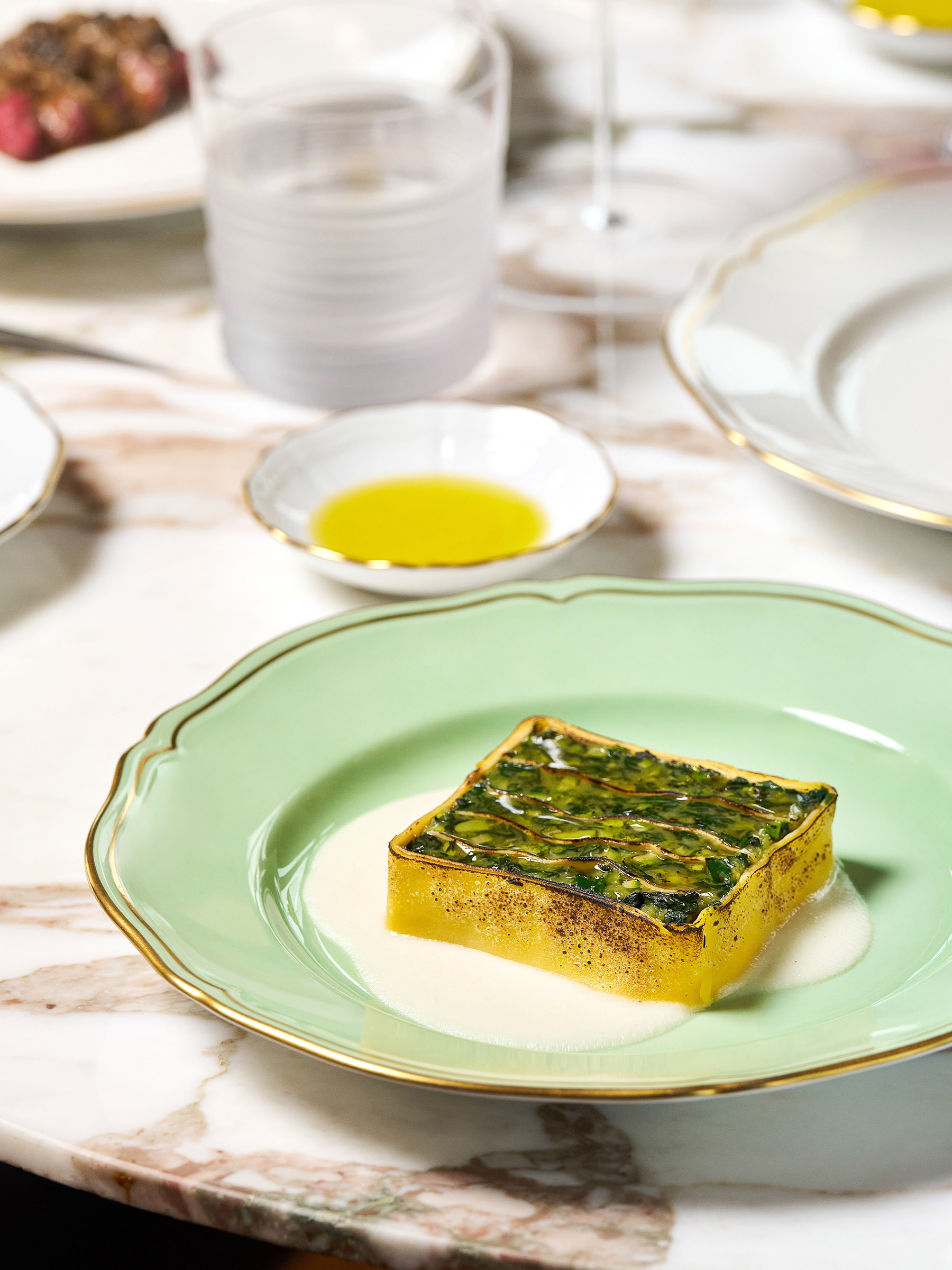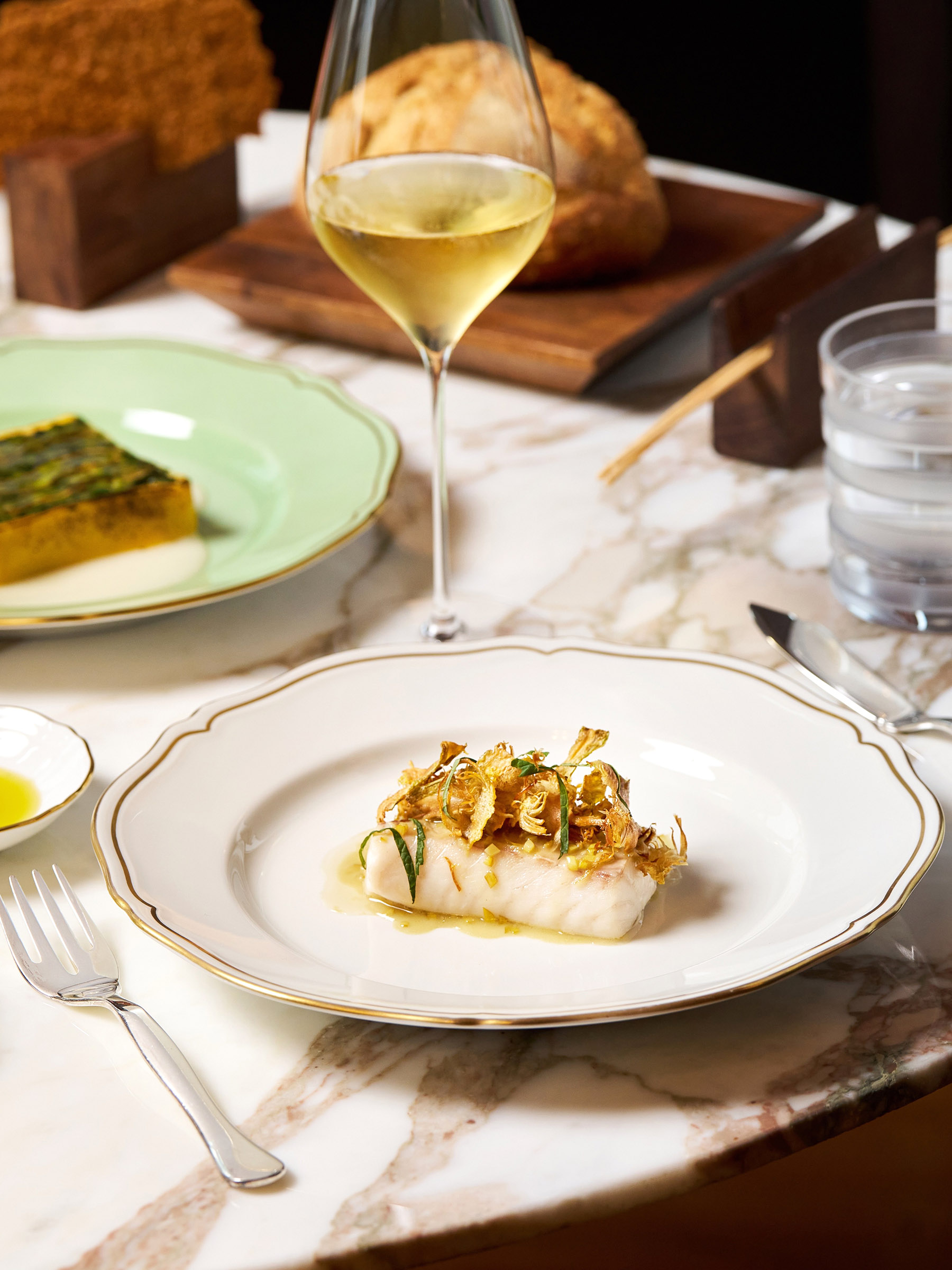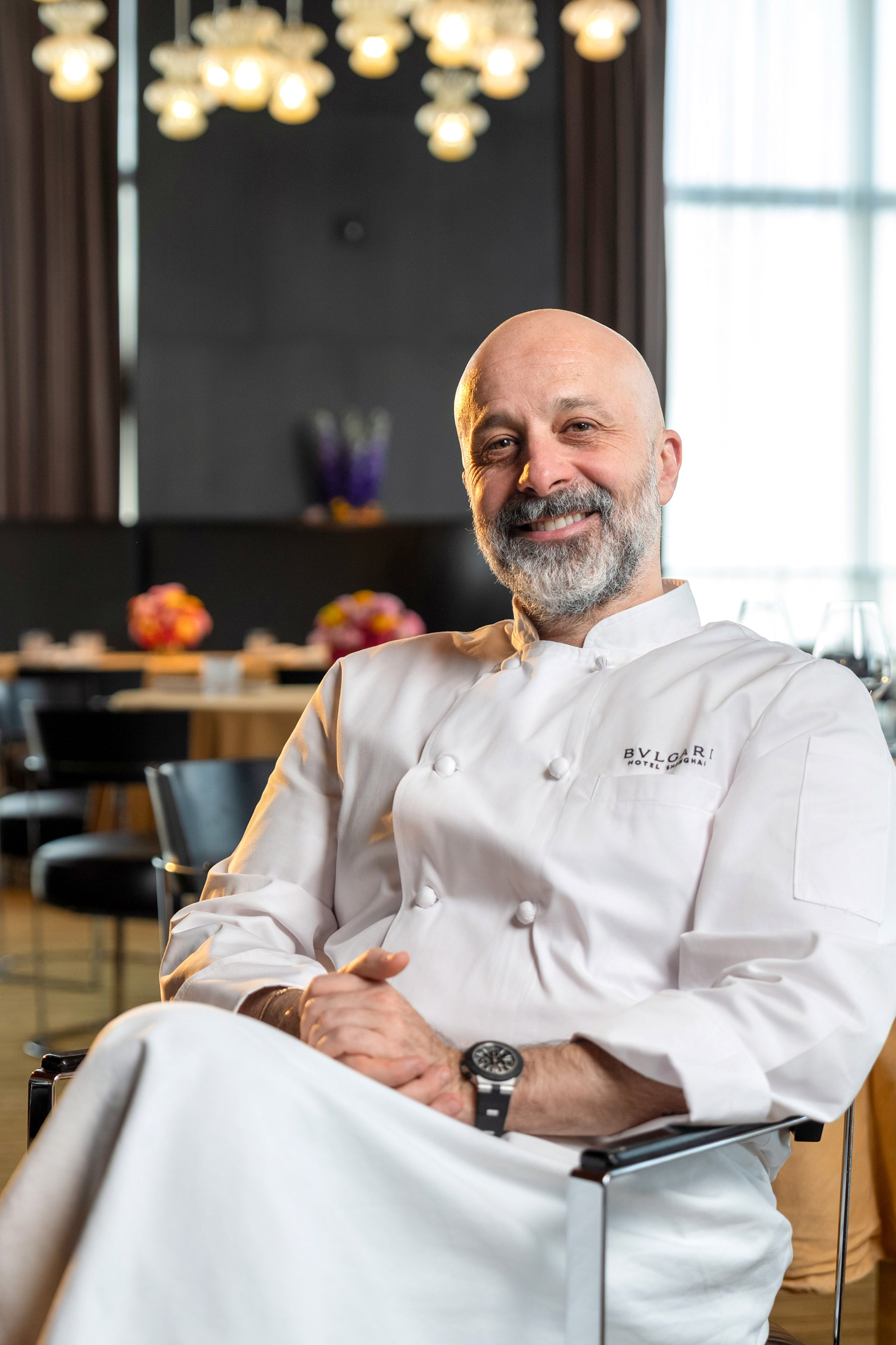
As the first blush of spring paints cities in soft hues, chef Niko Romito is once again redefining gastronomic borders at the Bvlgari Hotel Beijing and Shanghai. His latest spring menu, unveiled at the hotel's Il Ristorante — Niko Romito, is more than a seasonal offering, it's a testament to how fine dining can serve as a bridge between cultures, translating local ingredients into the universal language of flavor.
For Italian chef Romito, local ingredients are not mere commodities but dialects in a global culinary conversation.
This ethos is vividly expressed in dishes like Yellow Croaker with Artichokes and Mint in which China's prized yellow croaker — known for its delicate texture and light sweetness — meets Italy's artichokes, rendered in velvety purees and crispy textures. "When I discovered this fish, I immediately liked its taste and texture, and I wanted to combine it with the artichoke, widely used in Italy, especially in my region," he says.
READ MORE: From panettone to pasta, China's love affair with Italian food
The menu's Vegetable Lasagna with Spring Vegetables and Parmigiano Reggiano Sauce further illustrates this fusion. Handmade pasta sheets, reflecting Romito's Abruzzese (in central Italy) heritage, embrace layers of spring vegetables such as asparagus and peas held together by a Parmigiano Reggiano sauce that balances richness with delicacy.
"Spring offers a great variety of delightful vegetables: asparagus, peas, basil, spinach, the first zucchini," Romito explains. While the team has been extensively researching local ingredients to blend Chinese elements with Italian tastes. "It's a journey through authentic spring flavors, but it also tells the dialogue we have with the country hosting Il Ristorante — Niko Romito," he adds.

At the heart of Romito's philosophy lies the belief that authenticity and innovation are not opposing forces but complementary notes in a culinary symphony.
"To be authentic, you must be respectful toward traditions; innovation doesn't mean destroying but to keep building on some solid bases, eliminating and improving what can be eliminated or improved, giving even more strength to the values of tradition," he says. "Gastronomy shouldn't transmit only our past but also our present, and it can even anticipate the future."
Matthias Terrettaz, general manager of the Bvlgari Hotel Shanghai says:"Our partnership with Romito is not only about cuisine, but about a shared vision of refined Italian lifestyle."
Romito's journey from a small trattoria in Abruzzo to global culinary prominence is as layered as his dishes. Growing up in a family of bakers and cheesemakers, he inherited a reverence for simplicity.
"I have many memories of my father's pastry shop, but I also remember spending time with my grandfather, a true food lover who aged cheeses and cured meats in his cellar. This shaped my ideas and my taste for simple but excellent products," he recalls.
When fate intervened in 1999, Romito and his sister, then novices, took over their father's trattoria. What began as a temporary endeavor evolved into a lifelong pursuit, driven by a curiosity for transforming traditional recipes through modern techniques. "I started by replicating Abruzzese classics, but my heart was filled with doubt," he says.

When not in the kitchen, Romito immersed himself in reading and learning. A pivotal moment came when he discovered Vacuum: Cooking by Joan Roca and Salvador Brugues, a book that introduced him to avant-garde techniques. "I was filled with questions and sought answers in this book," he recalls.
His culinary journey was further shaped by two transformative internships — a month at the two-Michelin-starred (now three-star) Celler de Can Roca in Girona, Spain; and a stint at the two-Michelin-starred Caino in Tuscany, Italy. "These experiences opened my eyes to the possibilities of cooking," he says.
ALSO READ: Italian chef finds a menu of happiness in Sanya
Over time, he deepened his study of ingredient-focused techniques, refining his creativity and developing a signature style rooted in purity and innovation.
"I've always loved using simple, common ingredients, not only because I love them but also because I believe that the role of the chef should be to make something extraordinary from the ordinary," he explains.
This philosophy extends to his worldwide Il Ristorante — Niko Romito empire, where menus adjust to local markets while retaining an Italian essence. In Tokyo, he explores yuzu, a citrus fruit; in Dubai, saffron and cardamom enrich his dishes; and in cities like Rome, Milan, Paris, and Shanghai, he continues to innovate.
heqi@chinadaily.com.cn


